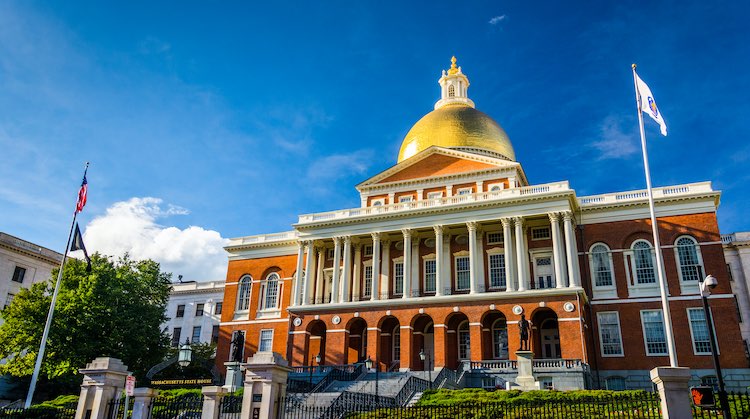
Massachusetts has turned itself the home to some of the world’s most prominent sports betting operators. However, one of the largest among them, DraftKing, faces difficulties as its sportsbook cannot run the business even being in its own jurisdiction.
Three of the neighbors of Massachusetts have valid, regulated, and legal sports betting venues- New York, Rhode Island, and New Hampshire. Connecticut is also paving its way to allow two of its tribes to operate multiple books, and meanwhile, the Vermont lawyers are considering the legislation of sports betting.
Governor of Massachusetts Charlie Baker backs expanding gambling allowing sports betting. But Boston capital’s lawmakers continue to postpone the arrival. Massachusetts has seen numerous legislative attempts to fail to make sports betting legal in the state since the Supreme Court of the U.S. imposed the federal ban notice on such gambling acts in May 2018.
At the last legislative session in the state, five different pieces of legislation to legalize sports betting have been presented. However, none could to the point of accordance on a viable process to operate.
Public Remarks
Baker has recently presented a sports gambling proposal that requires the Massachusetts Gaming Commission to determine the issuable number of mobile and retail sports betting permits. The governor proposes to charge a one-time license fee of $100,000 fee, with a $500,000 renewal fee.
Unlike all the other legislation, internet sportsbooks, also known as online skins, don’t need to get integrated into one of the state’s three land-based casinos: MGM Springfield, Encore Boston Harbor, and Plainridge Park.
The tax for the mobile sports gambling’s gross gaming revenue would be determined at 12.5 percent, and for the retail wagering, the amount would be 10 percent.
Reps. Orlando Ramos and Adam Gomez from the D-Springfield have recently presented another idea that would allow restaurants, bars, small businesses, and other convenience stores to operate sports betting. Both Ramos and Gomez emphasize that sports betting should not become a sector to be monopolized only by the three main commercial casinos of the state.
In addition to all these, there is also a house bill that would enable those three casinos to become the destination of the sportsbook and allow FanDuel and DraftKings to apply for rights of mobile sports betting.
